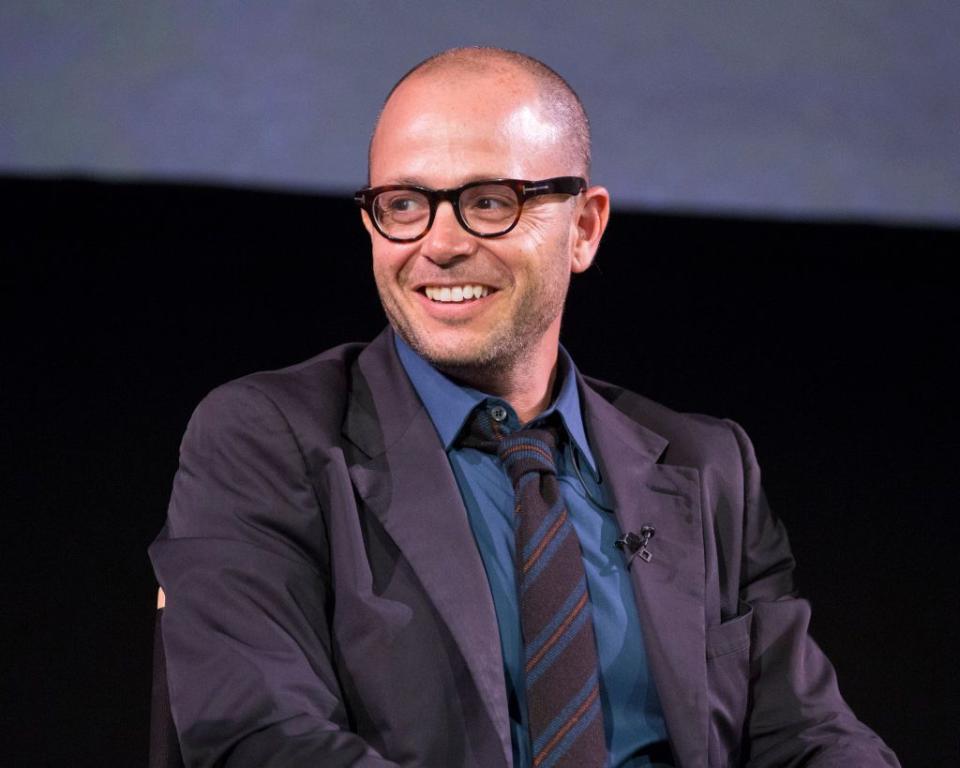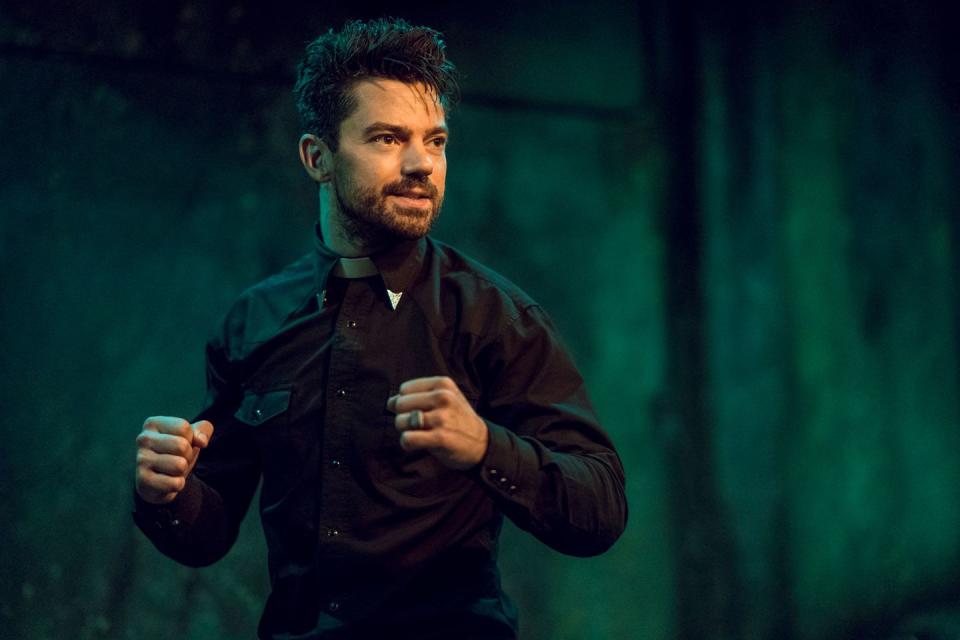The dark new shows that might save the superhero genre

With superhero movies continuing to dominate the box office, and TV series rolling out across multiple platforms (including the Autumn launch of the streaming service DC Universe), we may be approaching a fork in the road where these shows enter a new, much darker phase.
In film, both Deadpool and Logan demonstrated that comic-book characters can pull in audiences for R-rated movies, so series were always bound to follow.
Sure enough, HBO has recently confirmed a series order for Damon Lindelof's new take on Alan Moore's classic graphic novel Watchmen, which although remaining 'canon', will be more akin to a re-imagining, rather than carbon-copy of the original.
Lindelof stated: "Some of the characters will be unknown, new faces. New masks to cover them. We also intend to revisit the past century of Costumed Adventuring through a surprising yet familiar set of eyes... and it is here we will be taking our greatest risks."

[Damon Lindelof]
Plenty for Watchmen fans to either salivate or rage over – we know that Alan Moore has already washed his hands of the show, much as he dissed the cash-in Before Watchmen prequel graphic novels.
This is understandable, given the mediocre track record of previous adaptations of his work, including Zack Snyder's slavish movie recreation of Watchmen (2009), V for Vendetta (2005), The League of Extraordinary Gentlemen (2003) and From Hell (2001).
(The League of Extraordinary Gentlemen may also get a second chance as a series, although little has been heard recently of Fox's long-rumoured adaptation, which could take up some of the slack left by the premature end of Showtime's similarly-themed 2014-16 Penny Dreadful.)
Whether Lindelof can sway hardcore Watchmen aficionados of course depends on the end result, but, given the critical praise for his take on Tom Perrotta's The Leftovers, he at least stands a chance of cracking it. Lindelof certainly hasn't stinted in casting, with a cast that includes veteran heavy-hitters Jeremy Irons, Regina King, Don Johnson, Tim Blake Nelson, Frances Fisher and Louis Gossett Jr.
Currently, all that's certain is that Watchmen will be a long way from the relatively family friendly antics of series such as Supergirl, Agents of SHIELD, The Flash, Agent Carter and Legends of Tomorrow. Even ostensibly edgier shows such as Gotham and Black Lightning are likely to pale in comparison.

A series that, if anything, threatens to have an even darker hue than Watchmen is Amazon Prime's The Boys (2019).
Less well-known than Watchmen, The Boys exists in a world mirroring our own, where superheroes exist, but not as idealised comic book characters; underneath a carefully cultivated PR front, they're mostly corrupt, violent, sexually perverse, decadent bullies.
The CIA realises a check is needed on these out-of-control, super-powered narcissists and forms The Boys – a squad of hard-as-nails ex-Delta Force, SAS, IDF, SOC personnel – with the express mandate to keep the 'heroes' in line, through violence, blackmail and other forms of intimidation.
Created by Preacher's Garth Ennis and the Preacher TV series team of Evan Goldberg and Seth Rogen, in Ennis's words the show will "out-Preacher Preacher".

The Boys promises to push the envelope of the superhero TV series, its likely combination of violence, sordid sexual escapades, jet-black humour and cynical nihilism throwing shade on the likes of Marvel's Punisher, Jessica Jones and Daredevil.
As with HBO's Watchmen, Amazon hasn't nickel and dimed on casting, with Karl Urban headlining as team leader Billy Butcher as well as Elisabeth Shue, 'star of tomorrow' Jack Quaid and the underrated Kiwi actor Antony Starr (who made an impact in Cinemax's two-fisted pulp series Banshee).
The superhero genre resembles the Western in some ways; a hugely successful form of popular entertainment that gradually developed into multiple subgenres, where talented directors and writers could try to express themselves, be it in psychological westerns, noir, comedy, revisionist, satirical or political – all the while sugaring the pill with classic genre conventions.
Whilst some actors and directors disdain the superhero invasion, some – such as Legion's showrunner Noah Hawley – have realised that they can deliver a popular show, while at the same time shaping it to be something other than run-of-the-mill.

In superhero film, directors and writers have proven they can pay outward tribute to the box office but also stamp themselves on the material, as Christopher Nolan famously achieved with his Batman trilogy. (Ang Lee was less convincing with 2003's Hulk, although the movie does have its fans.)
Upcoming R-rated superhero shows can work in satire and politics in a more palatable way than in 'straight' drama – the depiction of urban decay is probably going to engage a bigger audience via Watchmen's blasted cityscapes than HBO's worthy NY public housing mini-series Show Me a Hero from 2015.
After decades of popularity, the Western was out of favour by the late '70s, and has only fitfully returned since then. Although there's no sign of us reaching peak superhero just yet, whether the genre will eventually collapse under its own weight in a similar fashion is another matter.
Reinvention, though, will be key to any possible future.
Want up-to-the-minute entertainment news and features? Just hit 'Like' on our Digital Spy Facebook page and 'Follow' on our @digitalspy Instagram and Twitter account.
('You Might Also Like',)

 Yahoo Movies
Yahoo Movies 
